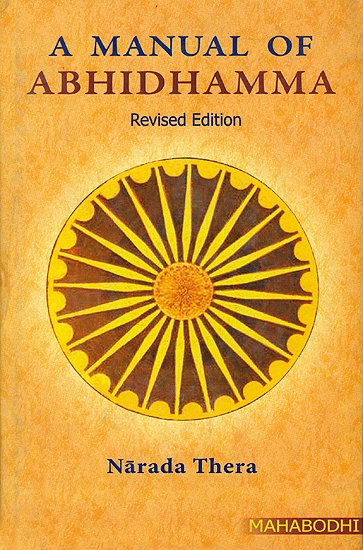Abhidhamma in Daily Life (by Ashin Janakabhivamsa)
by Ashin Janakabhivamsa | 66,666 words
English translation of "Abhidhamma in Daily Life" by Professor Ko Lay. Revised by Sayadaw U Silananda, International Theravada Buddhist Missionary University, Yangon, 1999...
Factor 12-14 - The three abstinences (samma vaca (right speech), samma kammanta (right action), samma ajiva (right livelihood))
When one is studying the three-virati cetasikas, one should possess the knowledge of ten ducaritas (evil conducts).
This book will make no elaboration on these. The ten evil conducts must be categorized into two groups; i.e. those concerned with one’s profession and those, which are not. For instances, killing in order to rob, to assassinate or to earn one’s living as a hunter or as a fisherman, and such like, are evil deeds which are concerned with earning a livelihood, micchajiva. Taking life due to anger or hatred is ducarita not related to profession! Likewise all other evil deeds can be divided into two classes.
In the case of false witness or advocating for unjust cause in court, earning an income by telling tales and fables as a narrator etc. are unwholesome deeds related to livelihood. False speech, verbal rudeness, making up false statements, etc. are vaciducarita not related to profession.
Virati (Abstinence)
Abstinence from kayaducarita (evil conducts) and vaciducarita (evil speech) is called varita (abstinence). If you refrain from telling falsehoods related to profession even though you have the change to lie, it is samma vaca virati (abstinence for the sake of good speech). But if the abstinence is concerned with your profession or livelihood, it is samma ajiva virati (abstinence for the sake of right livelihood).
The avoidance of killing even if you get the chance is samma kammanta virati if not related to livelihood. But if this avoidance is concerned with livelihood it becomes samma ajiva virati.
Other Good Deeds Not Belonging to the Class of Virati
In life there are also other good deeds, which are not of the nature of the three abstinences mentioned above. They are kusala (good actions) not associated with these virati cetasikas. Such deeds as saying good words, reciting Pali formula for observance of precepts such as “Panatipata veramani sikha padam samádhi yami” etc. are known as samma vaca (good speech). They form wholesome cetanas. Almsgiving, paying homage to Buddha, listening to the Dhamma, etc. are samma kammanta (good deeds). Such good speech and good deeds originate from wholesome cetana. Traditional occupations such as trade and commerce are samma ajiva (good livelihood). But in all these cases, as there is no virati cetasikas involved; they are said to be just kusala cetasikas.
Virati in Three Actions
There are three practical aspects of each of the three virati mentioned above. They are samaDana virati, sampatta virati and samuccheda virati. The first, samaDana virati is abstinence by means of observing síla (precepts). If you get a chance to kill a cow but you observe panatipata (refraining from killing) precept, and you spare the cow then you gain samadan virati merit.
Once there was a layman, who after taking precepts from a Bhikkhu, went to the fields to search for his list cow. While he was ascending a hillock, a big python entwined his leg.
As he was about to kill the snake with his sword, he remembered he had taken síla (precepts) from his teacher so he did not harm the snake. Due to the power of síla, the snake let him free and went away. Abstinence at the time of taking precepts or after doing so amounts to samadana virati. [Samadana = observance of precepts; virati = abstinence]
Incidental abstinence is classified as sampatta virati. For example, in ancient Ceylon (Sri Lanka), a lay devotee named Cakkana was tending to his sick mother whose physician recommended rabbit’s meat as a cure. So the layman went in search of a rabbit. He caught a small one in a paddy field and was about to kill when he suddenly felt pity for the timid animal and set it free. Back home he told his sick mother the incident then made a solemn vow, “Since my coming of age, I had never taken the life of any living being with a will to do so.” Due to his noble, solemn truth his mother recovered from her ailment. In this incident, the layman had not observed any síla beforehand. But at the time he caught the rabbit, instant compassion made him refrain from killing. This is a case of sampatta virati. [Sampatta = incidental; virati = abstinence]
When a person attains supra-mundane Magga citta he becomes totally free from kelisa (and abstain from all evil deeds). Such abstinence is classified as samucchedha virati, complete riddance of all evil [samucchedha = complete; virati = abstinence]
In this way, each basic virati cetasika is further divided into three sub-classes.
